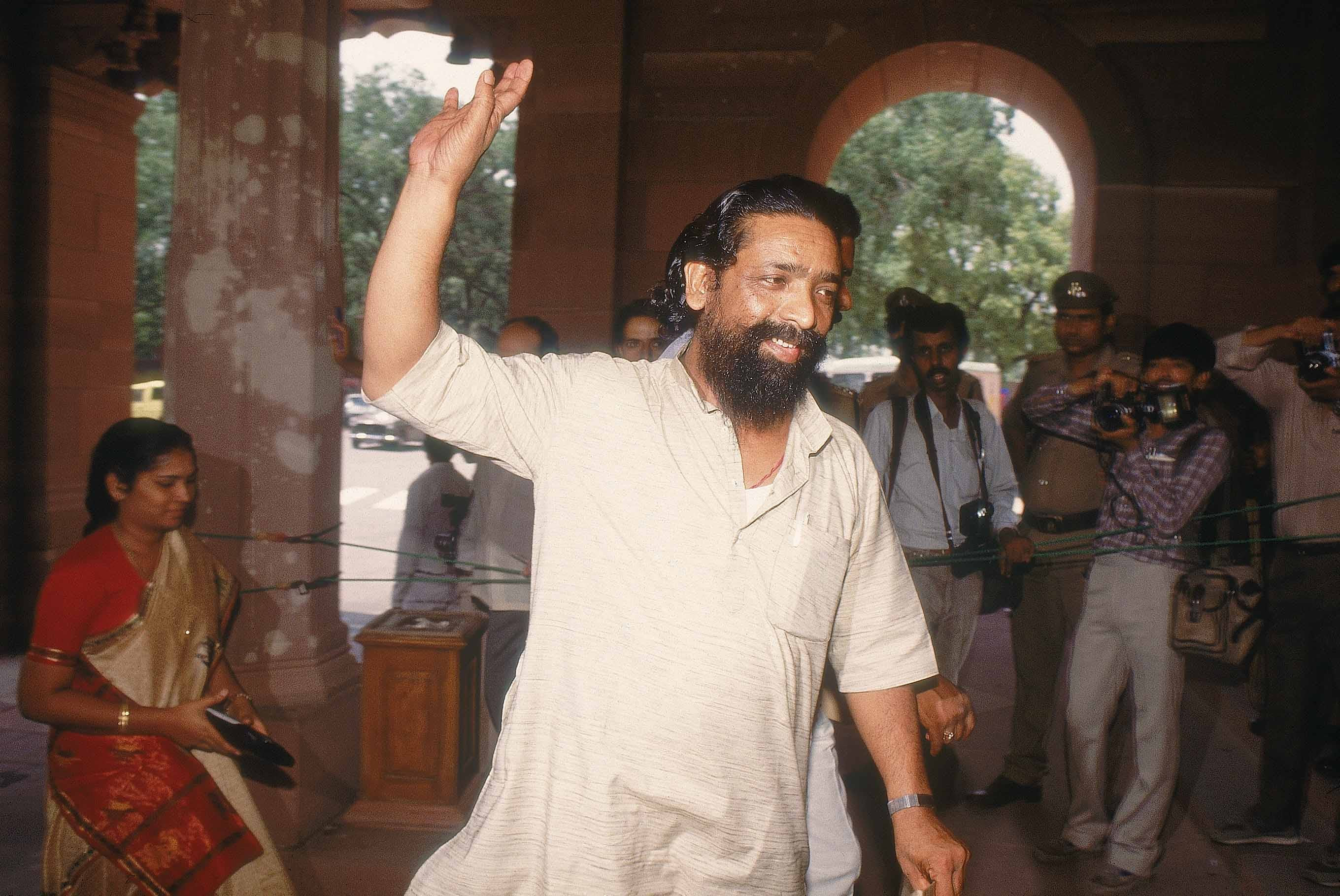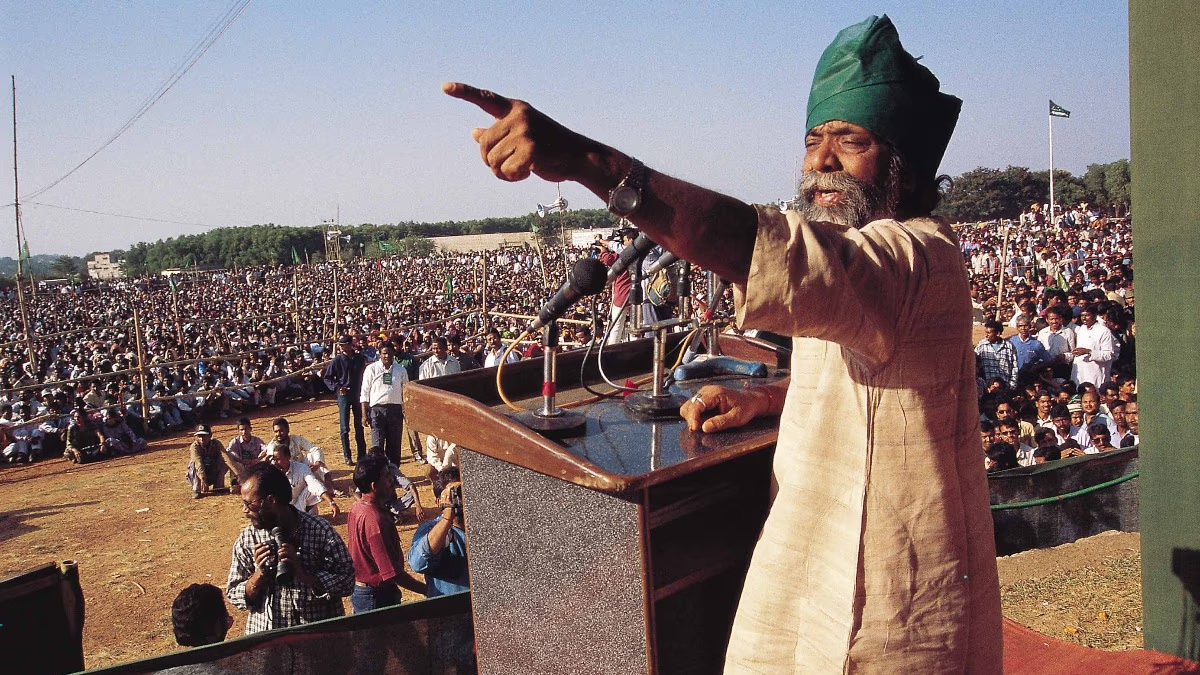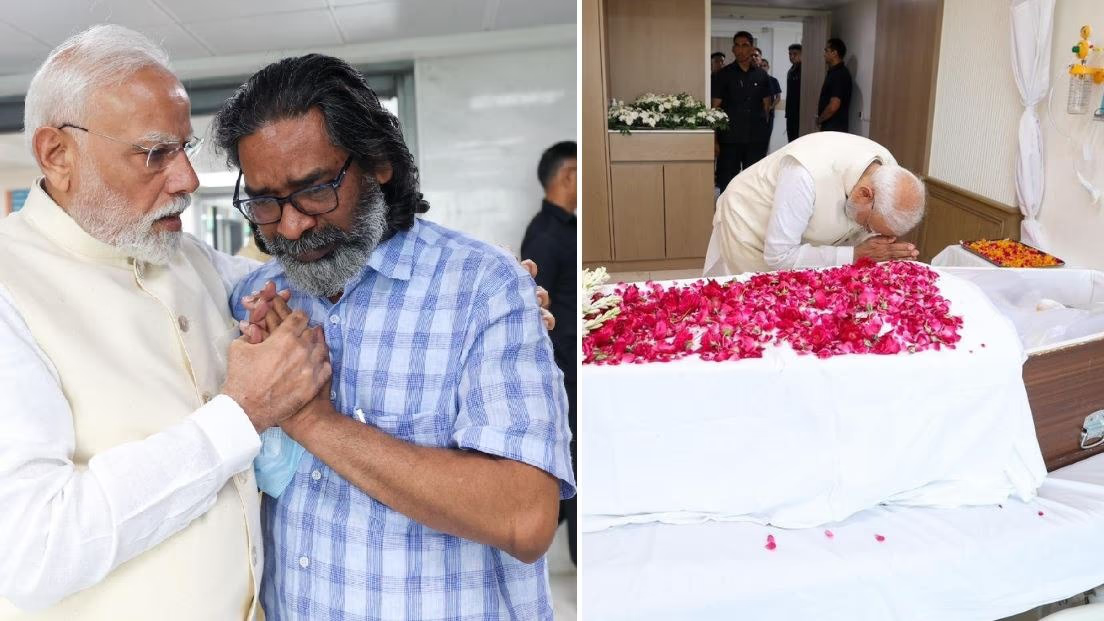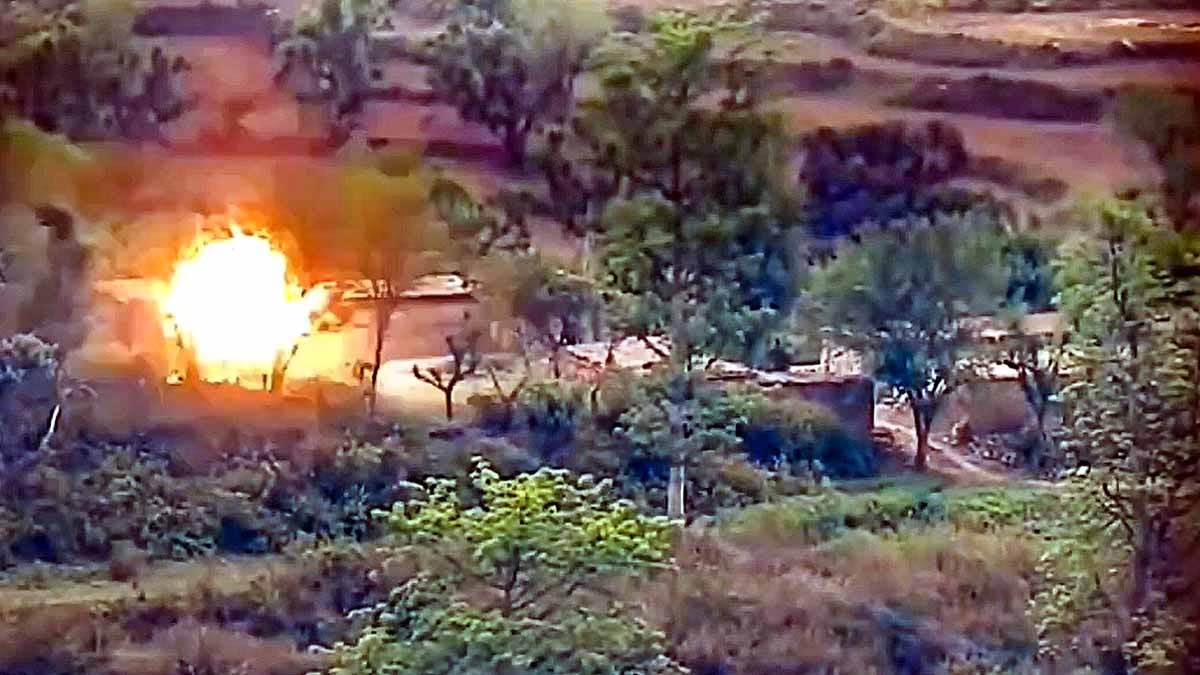The mighty figure of struggle, Dishom Guru Shibu Soren, has passed away. On the morning of August 4, 2025, he took his last breath at Delhi's Gangaram Hospital. People of Jharkhand and the nation respectfully called him Dishom Guru, which means a guide or pathfinder. This title was bestowed upon the 81-year-old Shibu Soren in Jharkhand.
Shibu Soren was a universally accepted leader for the tribals. Born on January 11, 1944, he amplified the voice of upheaval in Jharkhand, echoing the spirit of 'Earth Father' Birsa Munda. While Birsa Munda's revolution was against British rule, Dishom Guru's resistance was against the prevailing system in the country where the tribal society was struggling under exploitation, moneylending, and usury.
As Dishom Guru Shibu Soren began his struggle, the jungles of Jharkhand became his dwelling. He wandered in the forests for years, pursued by police bullets, spending nights in the wilderness.
How Shibu Rebelled Against the System
By the 1970s, Shibu Soren's prominence on Jharkhand's socio-political map was evident. His youthful spirit burned with the injustices faced by the tribals, spurring him to rebellion.
An event earlier set the course of Shibu Soren's political fate.
Shibu Soren’s father, Sobran Soren, was a teacher by profession and Gandhian by nature. Vigilant and active, Sobran Soren was a thorn in the eyes of money lenders who exploited tribals with exorbitant interest rates, often seizing their lands in repayment.
Read Also: Former Jharkhand CM Shibu Soren Passes Away, Son Hemant Says 'I Feel Nullified'
The indebted tribals, despite working hard to repay, never got their due, as their shares were usurped by money lenders.
Sobran Manjhi opposed these atrocities, which made him unpopular among Ramgarh’s money lenders, where Shibu was born. While studying, Shibu Soren learned of his father’s murder on the morning of November 27, 1957.
This incident became a turning point for Shibu Soren. He quit his studies to seek justice for the oppression. He started forming groups of tribal youth, and by 1970, took the reins of the movement.
During this period, he was honored with the title 'Dishom Guru.' Later, fellow activists Binod Bihari Mahto and AK Roy joined him in this fight against exploitation. Eventually, a need for a political party was felt.
Where Did JMM Derive Its 'Liberation' From
Author and veteran journalist Anuj Kumar Sinha mentions the formation of Jharkhand Mukti Morcha in his book 'Unsung Heroes of Jharkhand.'
Read Also:
On February 4, 1972, Shibu Soren, Comrade AK Roy, and Binod Bihari Mahto gathered at a meeting, deciding to establish Jharkhand Mukti Morcha for political transformation.
A year earlier, Bangladesh had become a separate sovereign nation, largely due to Bangladesh Mukti Bahini. Inspired by this 'Liberation’ term, similar aspirations for a separate Jharkhand led to the foundation of Jharkhand Mukti Morcha.
The Dawn of Dhankatni Movement
A few years later, with the strength of youth, Shibu Soren initiated the Dhankatni Movement. Tribal boys would harvest standing paddy crops of money lenders while tribal youth with bows and arrows protected them. Over time, these arrows became symbolic of Shibu Soren’s political identity.

Source: aajtak
The Dhankatni Movement gained Shibu Soren recognition, and long-tormented tribals saw him as their hero who could liberate them from usury, money lenders, and exploitation.
Shibu Soren launched agitations against money lenders in areas like Ramgarh, Giridih, Bokaro, and Hazaribagh. During this period, landlords and money lenders, by deceitful means, had captured tribal lands.
Drumming Announcements and Dhankatni
Shibu Soren and his associates launched movements in Tundi, Palma, Topchanchi, Dumri, Bermo, and Peertand. In October, tribal women with sickles would harvest crops from landlords' fields. There were drumbeat announcements. Tribal youth kept watch from afar with bows and arrows while women harvested.
This situation led to law and order issues in the area. Clashes led to fatalities. Shibu Soren hid in the dense jungles of Parasnath, leading the movement from there.
Read Also:
During this movement, Guruji set a code for fellow activists. He decided the fight was for the fields and would stay there. Thus, no women from the money lenders or landed class were harassed, nor was any property other than crops damaged.
When Guruji Had to Surrender
On June 25, 1975, Indira Gandhi declared an emergency in the country. The government machinery had unlimited power. Indira ordered his arrest. But Shibu Soren was elusive. KB Saxena, then Deputy Collector of Dhanbad, understood Shibu Soren. He explained the seriousness of law and political tricks to him, convincing him to surrender.
When Guruji Melted Listening to Chhath Songs
In 1976, Shibu Soren surrendered and was lodged in Dhanbad jail. A poignant event during his detention reveals the emotional side of the social activist Shibu Soren.
It was during Chhath, an important festival in Bihar-Jharkhand. A female prisoner sang Chhath songs in a sorrowful tone.
Senior journalist Anuj Kumar Sinha, who heard the story from Shibu Soren, recounted, "Listening to the female inmate, Shibu Soren expressed confusion. He asked his fellow Jharkhand activist Jagdhu Pandit about it. Jagdhu explained that the woman usually performed Chhath every year, but this time was unable due to incarceration, hence she sang in deep sorrow. Already renowned as a tribal leader, Shibu Soren felt immense empathy upon hearing a non-tribal woman's grief. In response, he arranged for the woman's Chhath rites to be conducted within the jail."
Showcasing his leadership even in confinement, Shibu Soren urged fellow inmates to forgo an evening meal, using the saved funds to provide Chhath Puja items for the female prisoner.
Quarreling with Uncle Over Alcohol
In tribal culture, alcohol consumption is prevalent, with liquor and ‘handia’ being commonly accepted. Despite leading the tribal community, Shibu Soren abstained from intoxication. His staunch opposition led him to confront and nearly fight with his uncle over alcohol use.
Presiding Over Local Courts
Committed to women's dignity, Shibu Soren was intolerant of disrespectful behavior. Veteran journalist Faisal Anurag narrates an incident in Dumka: while returning to Dhanbad after an event, Soren, in a hurry, neither ate nor drank along the way. Yet, he suddenly stopped mid-journey due to a disturbance.
Entering a village, he was offered a cot. Learning of molestation allegations, Soren set up a local court (kachahari) and delivered justice before resuming his journey, despite a significant delay in reaching Dhanbad.
Nighttime Police Enclosure
During his activism, Shibu was stationed in the forests of Palma one night when a barking dog alerted him. Staying on a hilltop, he noticed enclosures by police force. Quickly sounding the dundubi, a signal for nearby tribals, he promptly drew a crowd for protection. Overwhelmed, police retreated.
Political Journey
Shibu Soren, who served three terms as Jharkhand’s Chief Minister, contested his first election in 1980, albeit unsuccessfully. However, in the subsequent midterm elections three years later, he secured victory. In 1991, an alliance with Congress for Bihar's assembly elections saw a commendable performance by JMM. The legacy of Shibu Soren now rests with his son, Hemant Soren, under whose leadership JMM is Jharkhand’s largest party today.




